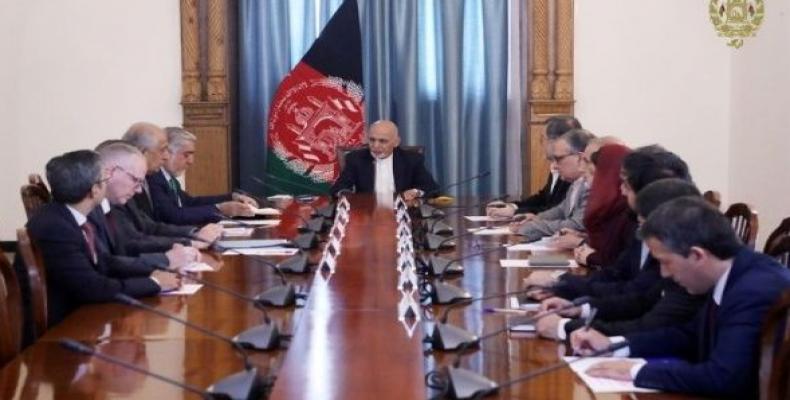Doha, September 3 (RHC)-- U.S. occupation forces and the Afghan Taliban have reported reached a draft agreement. Based on the draft peace deal, the U.S. would withdraw almost 5,000 troops from Afghanistan and close five bases within 135 days, chief U.S. negotiator, Zalmay Khalilzad, said on Monday.
The draft deal, reached after almost a year and nine rounds of negotiations with representatives from the Taliban in Qatar’s capital, Doha, must still be approved by U.S. President Donald Trump before it can be signed, Khalilzad said in an interview with Tolo News television.
Last week, Trump warned that the U.S. “will always have a presence in the country,” saying it would maintain a permanent presence of at least 8,600 troops initially. About 14,000 U.S. troops and some 17,000 troops from 39 NATO allies and partner countries are in Afghanistan in a non-combative role.
And although Taliban officials previously insisted that all foreign forces must leave, the now agreed upon phased withdrawal would require a commitment by the Taliban not to allow Afghanistan to be used by militant groups such as al Qaeda or Islamic State.
“In principle, we have got there,” he said. “The document is closed.” After reaching the accord, the U.S. envoy traveled to Kabul to meet Afghan President Ashraf Ghani on Monday to present the draft of the proposed agreement.
Khalilzad said the aim of the deal was to end the war and that it would lead to a reduction in violence, but there was no formal ceasefire agreement, as this will be a responsibility for the intra-Afghan talks and Ghani’s administration.
The U.S. representative explained that intra-Afghan talks, which might be held in Norway, would aim to reach a broader political settlement and end the fighting between the Taliban and the Western-backed government in Kabul.
A rather uncertain prospect, especially as the Taliban won’t “talk to the Kabul administration as a government,” seeing they consider it a U.S. pawn.
And the fact that national elections are scheduled for September 28 in which Ghani seeks re-election to a second five-year term but faces rejection from the Taliban, who have warned civilians to not head to the polls, dismissing them as a sham.
“For us, a meaningful peace or a path to a meaningful peace is the end of violence and direct negotiation with the Taliban,” government spokesman Sediq Sediqqi told reporters.
Yet many Afghan government officials have resented the exclusion of the government from the U.S.-Taliban talks, an issue that was underlined when Ghani was not allowed to keep a text of the draft agreement after it was shown to him.
The war in Afghanistan is Washington’s longest conflict in its history. It was started after the September 11 attacks in New York City when the U.S. invaded Afghanistan as part of the so-called "war on terror" to dismantle Al-Qaeda by removing the Taliban from power.
However, after a short-run removal, the Taliban regrouped between 2003 and 2008, to fight back and retook most of the country. The U.S. government now has found themselves in the position to broker a deal with the Taliban.
Almost $975 billion has been spent by the United States on its war of aggression and occupation of Afghanistan, and approximately 220,000 people have been killed.


